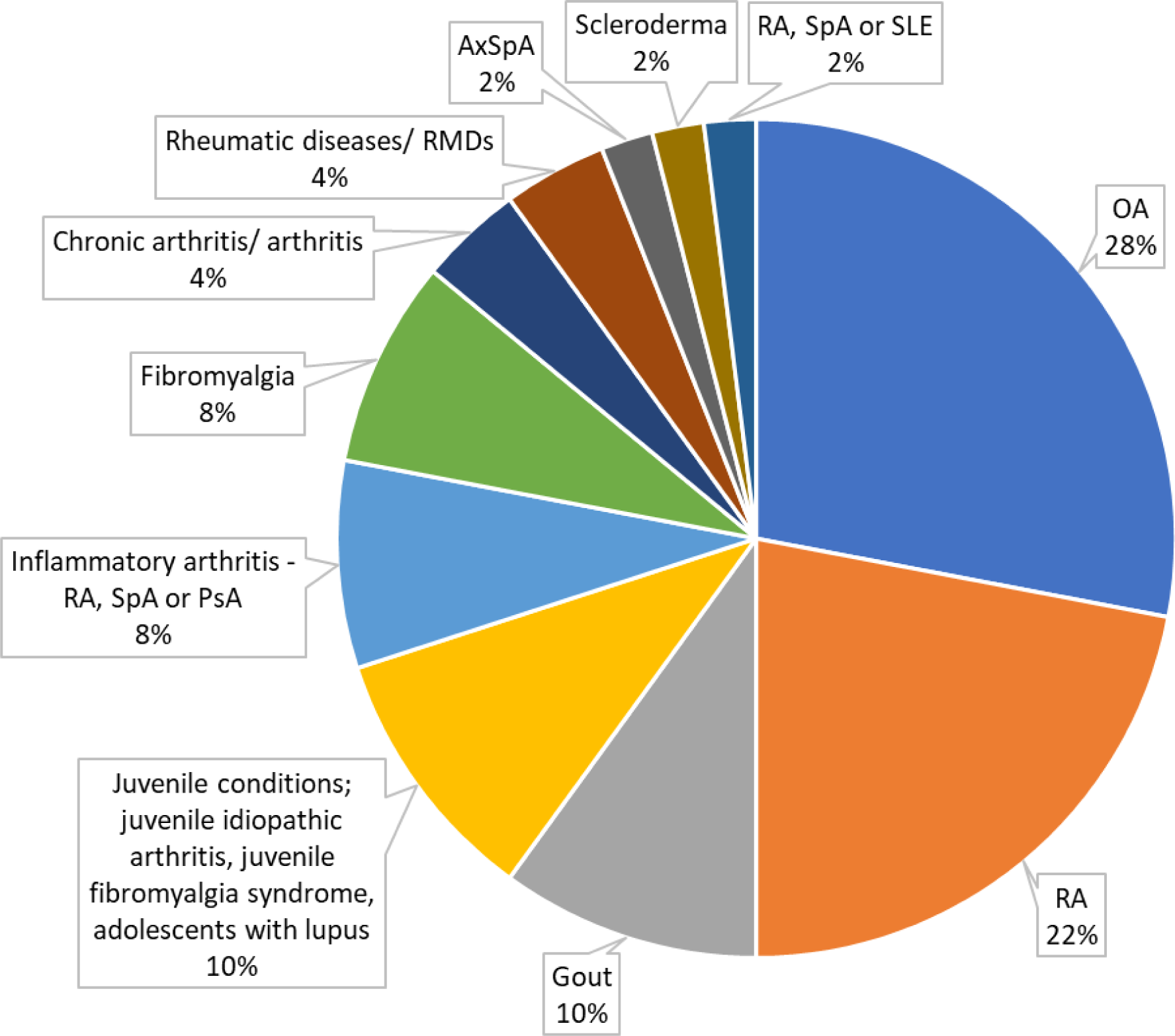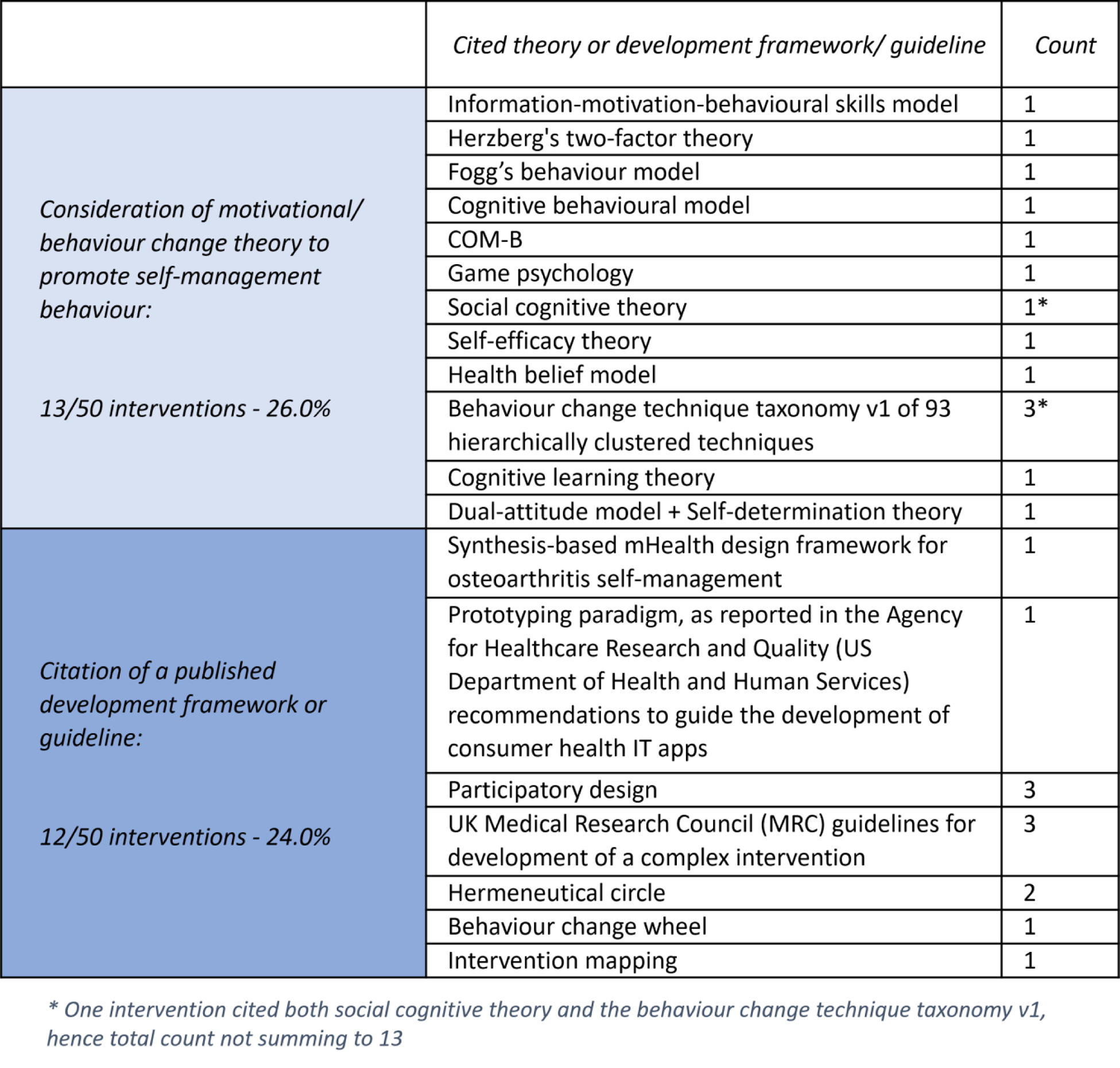

Background: Smartphone apps are being developed to support and empower people living with rheumatic and musculoskeletal diseases (RMDs) in their self-management. Motivational behaviour change theory and principles from human-computer interaction can inform the design of effective smartphone self-management interventions to ensure that interventions are engaging, effective and motivate positive health behaviours. However, it is not yet known whether these theoretical frameworks are being effectively harnessed in rheumatology.
Objectives: To review the scientific peer-reviewed literature, to identify how smartphone apps are being developed and utilised in rheumatology to support people living with RMDs in their self-management. A comprehensive overview of utilised theoretical frameworks, development processes, behaviour change techniques and targeted health behaviours are described.
Methods: Searches were conducted within PubMed, Scopus, Web of Science, Embase, MEDLINE and PsychInfo, up to 16 th October 2023. Peer-reviewed publications were identified and screened for eligibility by two independent reviewers. Data were extracted on populations, targeted health behaviours and utilised theoretical frameworks, development processes, and behaviour change techniques. A systematic, narrative evidence synthesis is presented.
Results: This systematic review identified 72 relevant publications, pertaining to 50 smartphone self-management apps. The majority of interventions were identified from Europe (52%), followed by the Asia-Pacific (22%), Americas (20%), and Middle East/Africa (6%) regions. Interventions were designed for a variety of RMDs (Figure 1) including osteoarthritis (28%), rheumatoid arthritis (22%), gout (10%) and juvenile conditions (10%). Approximately half of identified apps reported co-design with patients (48%) and healthcare professionals (52%). Identified publications reported a wide range of behaviours targeted by RMD smartphone self-management apps: the most common being physical activity (50%), symptom management (28%), psychological regulation (e.g., mindfulness, stress reduction, mood regulation, gratitude, disease acceptance, coping; 26%), diet or weight management (16%), and medication adherence (16%). Just a third (34%) of identified apps explicitly acknowledged alignment with clinical guidelines within their respective publications, and even fewer (24%) cited a published development framework or guideline (Table 1). Less than a third (26%) reported design with consideration of motivational behaviour change theory, six (12%) reported theoretical frameworks to promote app engagement (three of which used persuasive systems design), and five (10%) acknowledged use of behaviour change techniques (most frequently pertaining to goals and planning, feedback and monitoring).
Populations targeted by identified self-management apps

Table 1. Cited use of a motivational/ behaviour change theory or published development framework or guideline to inform app development

Conclusion: These results indicate that only half of RMD self-management apps are developed in collaboration with patients and healthcare professionals, and a minority are designed with consideration of motivational behaviour change theory, or theoretical frameworks to promote app engagement. This is a missed opportunity, and in order to optimise the potential of rheumatology smartphone self-management apps, these interventions must be developed in collaboration with users, and theoretical frameworks applied, to optimise app engagement and long-term positive health behaviour change (self-management). Application of theoretical frameworks to inform app development, guided and driven by the patient perspective, will allow researchers and healthcare professionals to better understand, effectively harness and test the causal pathways/ mechanisms underpinning intervention engagement and health behaviour change, to optimise intervention effects. To thereby design interventions that better support and empower patients in their self-management.
REFERENCES: NIL.
Acknowledgements: We acknowledge Dr Simon Jones for his input and supervision during the first few months of the project. This work was supported by the Sir Halley Stewart Trust [grant number:2316], who provided funding for RBs time during the first few months of the project. The Sir Halley Stewart Trust played no role in development of the protocol or conduct of the study, and views expressed herein do not reflect views of the Trust.
Disclosure of Interests: Rosemarie Barnett Scientific writer for a stand-alone piece of work for Pfizer, unrelated to this abstract, Christopher Clarke: None declared, Raj Sengupta Has received honoraria from Abbvie, Biogen, BMS, Eli Lilly, MSD, Novartis, Pfizer, Roche and UCB, Has received grants from Abbvie, Celgene, Novartis, and UCB, Peter C Rouse: None declared.